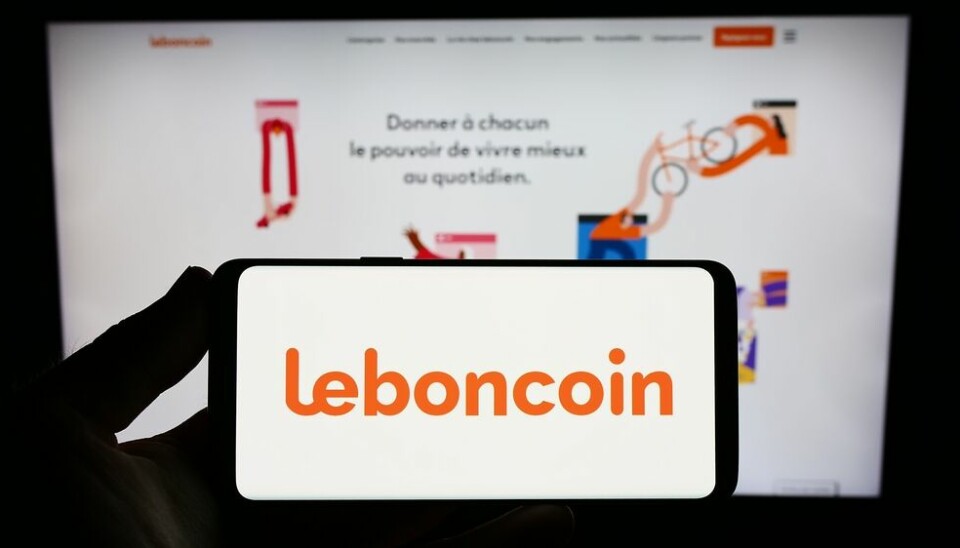How safe are purchases on French classified websites?
Leboncoin is France’s second most-visited website - but is also a hunting ground for scammers
Prospective buyers peruse over one billion pages on leboncoin each month
T. Schneider/Shutterstock
Websites that offer online classified ads are popular for hunting bargains and reselling used items, but they are also a hunting ground for scammers. We look at how safe they are and what users need to watch out for.
Leboncoin is France’s second most-visited website, with over 1.3billion pages viewed in March 2024 alone, according to data from the Alliance pour les chiffres de la presse et des médias.
The website’s popularity skyrocketed in 2020, when millions of people looked to sell items during the Covid-19 lockdowns. That year, the website’s CEO Antoine Jouteau told BFM Business that “transactions on leboncoin account for up to 1% of French GDP”.
However, along with rivals paruvendu.fr and vivastreet.com, leboncoin.fr has long been plagued by fake listings and unscrupulous vendors.
How safe are online classified listings?
Trust is the lifeblood of websites that provide classified listings, and it stands to reason that the most successful among them have the best safeguards against scammers.
On leboncoin and paruvendu, for example, customers and sellers first make contact via a secure messaging system, which works as a record of their communications in case things go wrong.
Next, payment for items on these websites must pass through the payment system provided, which keeps the money in an online safe until the customer has received the item.
If the customer, or in some cases the seller, is dissatisfied, the money can be reimbursed
The myriad of less popular classified ads websites, including vivastreet.com, allow customers and sellers to make contact directly by telephone, which greatly increases the risk of scams.
However, scammers still have methods to bypass the relatively high level of security on leboncoin and paruvendu.
Read more: This online tool helps you guard against identity theft in France
Common classified listings scams:
The fake payment email
ONLINE SALES AND TAX
If you resell something for the price that you bought it, you do not have to pay any sales tax.
However, for-profit transactions over €5,000 are subject to 36.2% sales tax, which must be recorded on your income tax declaration in section 2092-SD
A seller agrees to the sale of an item and exchanges contact details with the customer
The seller receives a fake email confirming the sale, along with a link to a payment platform (often purporting to be the official leboncoin payment site)
In order to receive the money from the platform, the seller enters their bank details
This scam was reported by consumer rights magazine UFC Que-Choisir in 2022, after a near miss for an individual trying to sell an old laptop for €1,850.
Fortunately Elie, the tech-savvy seller, noticed that the email address was incorrect, and despite appearances, was not actually from leboncoin.
How to avoid it: Do not exchange contact details on classified listings websites. Only communicate via the messaging service provided.
The QR code payment scam
A customer agrees to buy an item
The seller tells the customer to scan the QR code displayed on the sale screen
The QR code opens a another website where the customer enters their bank details
This scam was reported to UFC-Que Choisir in December 2023 after a victim tried to purchase a potters’ wheel for €667. In this case, the victim paid three times via QR code and received nothing.
“I flashed the QR code on my computer screen with my smartphone and it took me to leboncoin’s secure payment page. Or at least I thought it did…,” she told UFC-Que Choisir
“And then nothing happened. But the seller told me that someone else had been trying to pay at the same time, which caused a bug in the system. So I had to do it again, with another QR code, so I paid again, then a third time.”
How to avoid it: Only pay using the official payment method. Do not use QR code payments. Check the website URL.
Read more: Warning over QR code scam with electric car charging in France
What to watch out for when buying online
Leboncoin did not respond to requests from The Connexion to talk about common scams on its website, however it does offer the following advice for people buying online:
Do not engage and report profiles and all communications to the site administrators if the seller/customer,
Wants your contact information,
Says they are abroad,
Asks for confidential information,
Wants to communicate on another platform,
Wants to use their own delivery service,
Or if the price seems unrealistic.
Victims of online scams are also advised to report them to the official cybercrime watchdog internet-signalement.gouv.fr.
Have you been affected by scams when buying or selling on classified websites? Let us know at news@connexionfrance.com





























